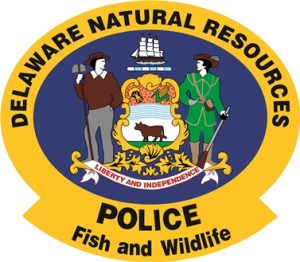Projects at Mispillion Harbor, Ted Harvey Conservation Area are reducing flooding, restoring habitat, improving resiliency and protecting public safety and property
DELAWARE BAYSHORE (Sept. 12, 2016) – Restoration work has begun at Mispillion Harbor Reserve and the Ted Harvey Conservation Area on two key DNREC projects that will repair and restore beaches, critical wetlands and other natural defenses. Both Division of Fish and Wildlife projects protect and restore wildlife habitat, improve coastal resiliency and preparedness to storms, and protect public safety and property by reducing flooding to communities, while enhancing ecotourism and recreational activities along the Delaware Bayshore.
Mispillion Harbor Reserve Located near the Town of Slaughter Beach in central Kent County, Mispillion Harbor Reserve’s beach, wetlands and adjacent resources have been degraded by Hurricane Sandy and subsequent coastal storms, resulting in the significant loss of habitat for spawning horseshoe crabs and shorebirds.
The Harbor is a major stopover in the Atlantic Flyway for waterfowl and shorebirds, including the federally threatened Red Knot. The birds descend on the Harbor to feed on horseshoe crab eggs before continuing their annual migrations to their Artic breeding ground. Birders and biologists from around the world come to Mispillion Harbor to witness the annual spring spectacle. In 1986, Delaware Bay joined the Western Hemisphere Shorebird Reserve Network as a Site of Hemispheric Importance due to the sheer number of shorebirds that use the Bay as a migratory stopover.
Lindstrom Excavating has begun restoration of the beach and the stone dike. Restoration of the beach includes adding 46,000 cubic yards of sand to the Harbor. The stone dike is being restored with groins which include 12,000 tons of new stone that add height and stability. The stone raises the dike to a level that will better withstand waves and wind from coastal storms, thereby reducing flooding to adjacent wetlands, improving the resiliency of the Harbor to future storms and protecting the navigational channel through Mispillion Inlet, ensuring continued commercial and recreational access to the Delaware Bay.
The project is expected to be completed in April 2017 – in time for the annual shorebird migration.
Ted Harvey Conservation Area Ted Harvey Conservation Area, along the St. Jones River near the Town of Kitts Hummock, is a large coastal impoundment that provides critical habitat for migratory waterfowl, shorebirds, and other wildlife. The impoundment has suffered several dike breaches and subsidence over the years, and malfunctioning water control structures have resulted in flooding of more than 400 acres of habitat.
The project is restoring more than 5,000 feet of dike and replacing two malfunctioning water control structures. About 40,000 cubic yards of soil is being added to increase the average height of the existing dike by 4 feet, improving coastal resiliency and preparedness to storms. The new water control structures will allow the Division of Fish & Wildlife to effectively manage impoundment water levels for wildlife, thereby improving biodiversity and enhancing recreational activities, including waterfowl hunting.
Project contractor Zack Excavating is scheduled to start restoration this month and complete the project by October 2017. As a result, the Ted Harvey South Impoundment and south boat launch parking lot will be closed to the public beginning Sept. 26 and will reopen once the project is completed in 2017. Therefore, the impoundment will be closed for the 2016/17 waterfowl season. Additionally, potential closings may take place for the road leading to the restoration site. Drivers should be aware of heavy truck traffic in the area and follow signs, if the road is closed.
The projects are made possible by two federal grants totaling $6.5 million awarded to DNREC’s Division of Fish & Wildlife from the U.S. Department of the Interior (DOI) through Hurricane Sandy Coastal Resiliency appropriations. Administered by the National Fish & Wildlife Foundation (NFWF), the grants have leveraged additional funding from state watershed stewardship funds, a Wildlife Sport Fish and Restoration federal grant, and Ducks Unlimited (DU). The projects are the result of close cooperation and partnerships among DNREC, the U.S. DOI, the NFWF, DU and Delaware’s Congressional Delegation of Senator Tom Carper, Senator Chris Coons, and Congressman John Carney.
For more information contact Jeremey Ashe, Habitat Restoration project manager, Division of Fish and Wildlife, Jeremey.Ashe@delaware.gov or 302-735-3601 or visit the Delaware Division of Fish & Wildlife Facebook page at www.facebook.com/DelawareFishWildlife
This project is part of DNREC’s Bayshore Initiative, a landscape approach to restore and protect fish and wildlife habitat, increase volunteer participation in habitat stewardship projects, enhance low-impact outdoor recreation and ecotourism opportunities, and promote associated environmentally compatible economic development. In 2011, the Delaware National Bayshore plan received national recognition as one of two Delaware projects included in a 50-state report from the U.S. Department of the Interior outlining some of the country’s most promising ways to reconnect Americans to the natural world.
Contact: Melanie Rapp, DNREC Public Affairs, Melanie.Rapp@delaware.gov, 302-739-9902
Vol. 46, No. 333

